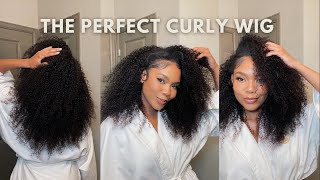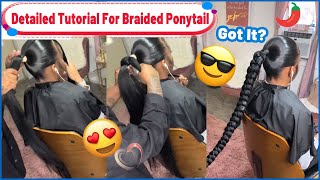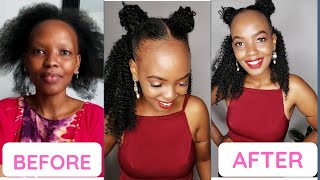Henna The Breakage Zapper: Using Henna Instead Of Protein To Improve Hair’s Strength
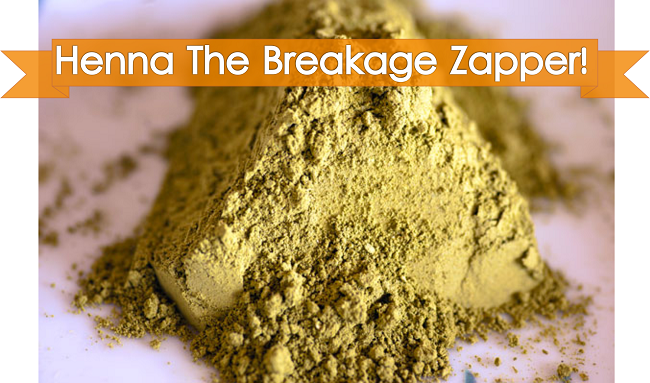
Have you ever looked at Caucasian or Asian hair close up? It may sound like a strange question but relatively early in my hair journey I wanted to know what it was about black hair that made it different from other hair types. Aside from the obvious curl difference, a microscopic cross section view of Asian hair revels that it is round in shape, Caucasian hair varies from oval to round while afro textured hair is a much flatter elliptical shape.
Without the aid of a microscope however you should be able to see an obvious difference in the thickness of individual strands of hair. Black hair tends to be thinner than other hair types, perhaps owing to it’s flatter cross section and because black hair holds less moisture it will also tend to be lighter, one of the reasons why our hair may feel cottony rather than silky.
It would stand to reason that anything that thickens the strands would also increase the strength of the hair thus reducing breakage. And of course I mean to thicken the width of individual strands rather than thicken the volume of hair per square inch.
Henna is one of the only natural treatments that genuinely does thicken hair strands over time and as such adds to the strength of your hair. The dye molecule in henna called lawsone has a high affinity to the keratin in our hair and hair that has been treated with henna has been shown to weigh more than hair that has not been treated. Pretty basic stuff really.
But it’s difficult for me to talk about henna from a third person perspective being intimately acquainted as we are. I discovered the merits of henna very soon after my big chop. At the time it was all the rage in the natural community as a way of improving your hair’s strength, adding a gorgeous glow of color without the damage of traditional hair color and it was also said that multiple uses of henna* also improved shine in natural hair.
Now I can’t speak much for shine, my hair is cottony and as such never reflects light on it’s own without the use of oil, but in regards to hair strength, henna is the bomb.com! This is purely anecdotal you understand but I have always found that henna zaps my breakage just as well than Aphogee two step treatment. A bold claim if there ever was one.
Here’s the thing, protein from hydrolyzed keratin, or whatever the protein flavor of the month is, attaches itself to your hair thereby improving moisture retention. Henna does a similar job. Since it has such a high affinity for the keratin in our hair it is considered a permanent color so you will find that a henna treatment will fill in the gaps and damage in your strands in a very similar way that protein does so can easily be used to partly replace protein in your hair regimen.
An added benefit of using henna* is that you can do multiple henna applications for added lawsone deposits into your strands and this weight will give your hair great ‘drop’ and swang when worn down.
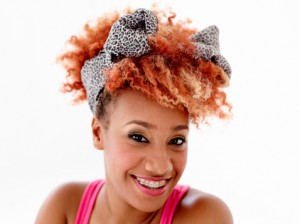 Curl loosening
Curl loosening
Yes, henna treatments when done often will eventually begin to loosen your curl pattern. This happens not through some chemical action but rather through the increased weight of henna in your hair.
It won’t be a pronounced difference like getting a texturizer but for those of you who are very familiar with your hair’s kinks coils and curls, you will definitely notice a difference in how your hair hangs after a few hennas.
Whether you like that aspect of henna* or not is a personal choice of course but you can easily avoid any changes to your curls by reducing the frequency of your henna treatments or alternatively doing henna gloss treatments instead of full hennas.
In case you don’t already know, a henna gloss is a mix of henna and conditioner left in your hair for less time than a regular henna. Additionally in a henna gloss the dye is not allowed time to ‘release’ before applying to your hair. This makes it more a ‘diet henna’ compared to the real experience.
From a personal standpoint, back when I was actively growing my hair out, I found that henna also smoothed my cuticles making my hair easier to detangle and truthfully, my regimen would not be as effective without my occasional henna treatments.
Warnings
► Some people have found that the whole henna application process can be traumatic for very fine weak strands so may end up doing more harm than good.
► Even though henna is not a true protein treatment, it works just like one so it may make your hair feel hard afterwards. It must be followed up immediately by a moisturizing conditioner* to rebalance your hair.
► Only attempt multiple henna treatments if you are sure that your hair can handle it. Too much henna in a short period of time can and will cause breakage especially if you don’t balance it out with moisture.
► To use henna to stop hair breakage, do a treatment every 2-3 months to begin with. You can always tweak and adjust this perhaps adding a henna gloss in between if you feel you need it.
► Henna will not dramatically change your hair color (if your hair is black or brown), you may get a reddish glow when you are out in sunshine but don’t expect to turn into a fiery redhead or anything. If you lift color from your hair first you will get a deep orange color that will turn to a lovely reddish auburn with subsequent applications. Of course henna can also be combined with indigo* to get different shades of brown to black which makes henna/indigo* a great natural way to color your hair and blend your grays if you have any.
► Unless you are protein sensitive I would not recommend that you use henna exclusively to strengthen your hair. It can certainly replace part of your protein requirements but not all of them. A good rule of thumb is to replace every other hard protein treatment that you are due with a henna.
► A single application of henna won’t make a dramatic difference to your hair. The best effects of henna are cumulative so as long as you are not experiencing any negative effects, try henna at least 3 times before you decide if you like it or not (I loved it!).
Whatever you decide, make sure you do some extensive research into henna* before you try it. As with most things, your own mileage may vary.

